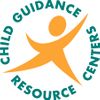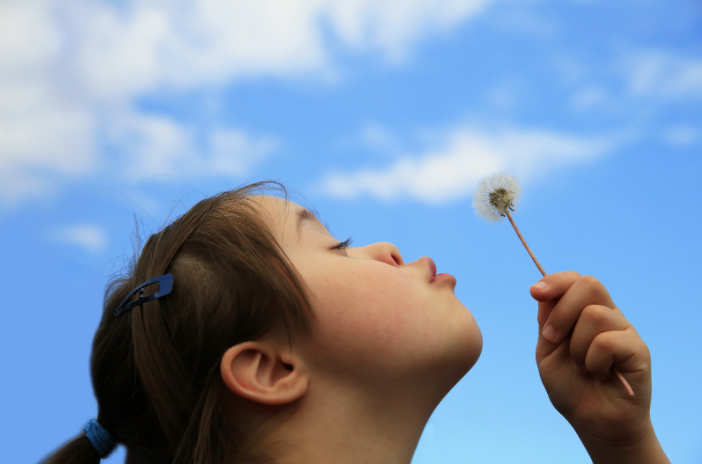Today, we're sharing an interview with one of our clinicians, Christine Yu! She tells us about her experience with Down Syndrome both personally and professionally and shares some statistics and insights in preparation for Down Syndrome Awareness Day on March 21st.
Tell us about yourself! I'm Christine Yu and I have been at Child Guidance for 3 years, currently as an IBHS – Behavior Specialist. I have been working with children with Developmental Delays since 2007.
Please share your perspective of working in this field and raising a child with disabilities. Working in the mental health/behavioral health field and raising a child with disabilities is a blessing and a curse. I laugh at this because it’s near impossible to turn off my analytical therapist brain. But when it’s your child, the investment is different. The willingness to try something you know will be difficult for you and/or child can be low when the demands on her are already so high. I can dissect any particular situation and say, “Ok, logically, this is what I should do.”; however, my mom brain doesn’t always operate logically when supporting my own kid. This experience, the intersect of my professional and personal life has truly and wonderfully helped my become a better clinician. I have a profound respect for the major undertaking we are asking caregivers to take on when we present them with a treatment plan. I respect the challenge and the extra brainpower it requires in order to remember what I am asking them to take on as they are the key facilitators of change in their child’s behavior.
On another note of this professional/personal intersect, I see the challenges parents face in accessing and understanding the services available for their children with Down Syndrome. This is a wildly underserved community of people. NOT for lack of providers or clinicians to support them, but a general lack of caregiver awareness of available treatment options during their child’s early development. I am working with the Delaware County Down Syndrome Interest Group and CHOP to try to remedy this.
What is something you wish people knew about Down Syndrome? 1 out of every 700 live births is a child with Down Syndrome. Not all children with DS have serious or even mild medical conditions. The vast majority of mild to severe medical conditions common for individuals with DS are treatable including congenital heart defects. Individuals with DS are just like everyone else, milestones just take longer. They vary in skill level just like everyone else, have their own unique talents like their neuro-typical peers, and feel the full range of emotions. I can stand here and tell you my beautiful, funny, loving daughter is NOT always happy, lol. Isabelle has physical features one might identify as characteristics of Down Syndrome…beautiful almond shaped eyes, a tiny little nose, and ears that stick out ever so slightly. She has a tiny frame and even though she is four, she just grew out of her size 2T dresses. But the truth is, Izzy looks way more like bits of her father and myself than her DS traits. Her personality, even her behavioral challenges, are more genetically similar to her father and I than DS. She is a whole person and that triplication of her 21stchromosome is just a small and precious part of who she is.
From a clinician’s perspective I really want my colleagues to know that around 30% of children with Down Syndrome have or will have a behavioral issue that can be labeled with a diagnosis. 15% of children with Down Syndrome have a dual diagnosis of Autism Spectrum Disorder, like my daughter. There is a saying in the Autism world, “Once you have met one child with Autism, you have met one child with Autism”. No two Autistic children are the same. This rule of thumb also applies to children with Down Syndrome. In addition, it is important to understand brain functioning in individuals with DS IS different. When neurotypical and babies with DS are born, their brains are exactly the same. By around 9 months, brains in babies with DS begin to develop differently. Did you know that babies with Down Syndrome are much more socially aware and emotionally responsive to their caregivers? This occurs because of differences in their frontal cortex. Children with Down Syndrome may be more impulsive because they may have an underactive/underdeveloped pituitary gland and cerebellum.
I highly recommend the book, Positive Parenting Solutions for Children and Teens with Down Syndrome by Dr. David Stein. When an individual’s brain processes information differently you need to be strategic in your interventions in a different way. For instance, negative reinforcement is generally not effective for children with DS; however, positive social reinforcement taps directly into their frontal lobe and is very effective at supporting skills acquisition. As a therapist working with an individual with DS, understanding the root cause of developmental delays, when possible, promotes greater success and less frustration for client and treatment team, not to mention, its best practice.
What have you learned from your child? Oh my goodness…As a clinician I have always believed that people are capable of so much. It’s one thing to believe it, another thing to witness, and an entirely blessed experience to witness it in your own child! Children, my little monster included, are soooooo super resilient! This child is a beast! She had 70 medical appointments in her first year of life, open heart surgery, nasal surgery, endless blood draws, and hours upon hours of therapy per week all in addition to playing, learning, and loving. The girl is a freakin superhero, as are her peers in the Down Syndrome Community. So, in response to her resilience I do my best to never hold her back and to never underestimate her abilities for she is far more able than disabled.
What are your goals for the Down Syndrome community and how do they relate to mental/behavioral health support and education? My goals for the Down Syndrome Community is to support parents/caregivers/educators/therapists by raising awareness of the benefits of behavioral support services, specifically during pre-school and elementary school years. I truly believe that by behaviorally supporting a child and family with DS early we can teach crucial adaptive skills in areas of communication, social skills, and coping, which will ultimately support an increase in inclusion across community and educational settings.
Is there anything you would like others to know that we have not included in the questions above? Developmental Disability and Neuro-diversity is not rare. 1 in 700 people born have Down Syndrome. 1 in 68 people are diagnosed with Autism. That is not rare. We should stop acting like it is. Calleen Peterson from An Ordinary Mom said, “A child with disabilities often spends hours being taught how to interact with others, but why don’t we spend time teaching those without disabilities to interact with them.”

